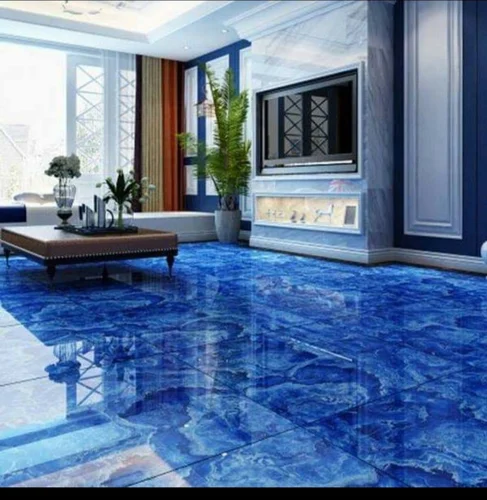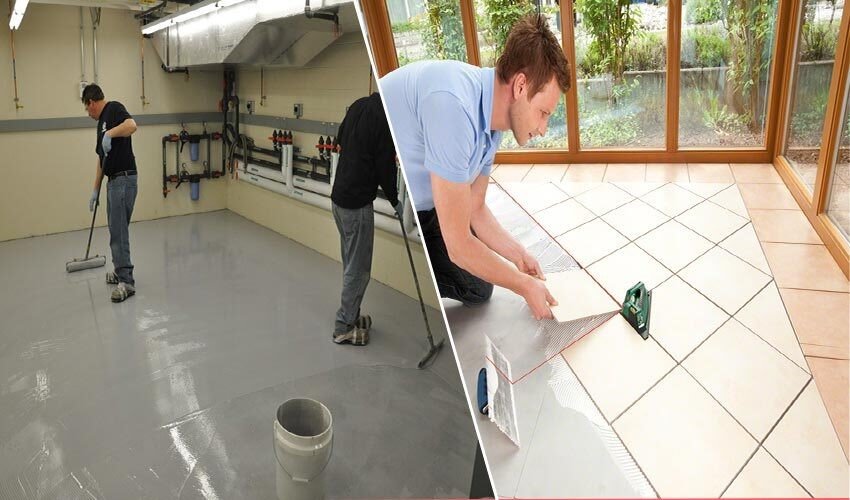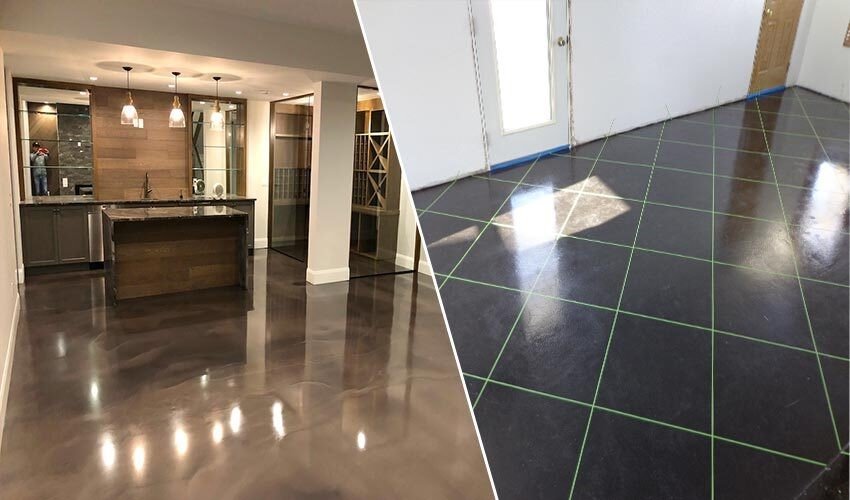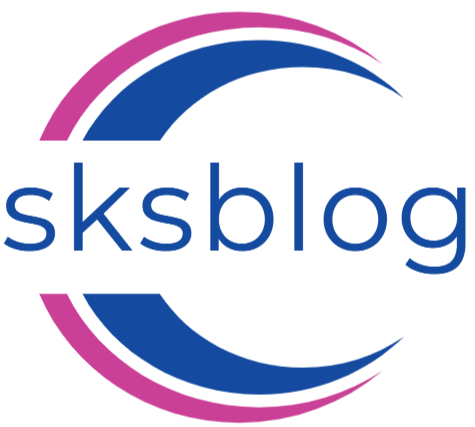Introduction
Epoxy flooring stands out as a top option for flooring that is strong, long-lasting, and aesthetically pleasing. This thorough guide will give you important information whether you are thinking about epoxy flooring or any other flooring option for your home, office.
Table of Contents
There are a variety of flooring options, including hardwood, laminate, carpeting, and tile. We’ll examine the distinctions between these flooring options and talk about whether one might be the most suitable for you.
Customers have a wide range of flooring alternatives, so making the ideal decision can take some time.
To assist you in making your decision, this article will contrast tile flooring with epoxy flooring. There are many solutions available for the floor itself. But how do these provide advantages and disadvantages? Before making a choice, you should thoroughly consider each option.
Epoxy Flooring

A layer of epoxy resin, a polymer, is put to the top of a concrete floor to create epoxy flooring. Epoxy resin flooring can be put over both new and old concrete floors and comes in a variety of colors and finishes. This flooring is hardwearing, simple to maintain, and fade- and stain-resistant. Polyoxide flooring is non-porous, slip-resistant, and perfect for high-traffic areas.
Advantages of Epoxy Flooring
- Epoxy resin flooring is made by layering several layers of epoxy resin. Because of this fiber flooring’s outstanding longevity and low maintenance requirements, it is frequently used in commercial and industrial environments.
- The ease of upkeep for polyoxide flooring is one of its main benefits. Epoxy floors do not require specific cleaning or upkeep, in contrast to other types of flooring materials. You must frequently sweep your epoxy floor and clean it with a mild soap and water solution to keep it looking good.
- Epoxy resin flooring’s exceptional durability is a key advantage. Epoxy flooring are excellent for high-traffic areas because they are resistant to spills, scratches, and stains. Additionally, epoxy flooring do not age or change color over time. so you can be sure that your floor will look new for years to come.
Tile Flooring

There are many different flooring options available. Epoxy and tile are two popular choices for flooring. But which one is the best for you? To assist you in making your choice, the benefits and drawbacks of each type of flooring are listed below.
Tile is a long-lasting, simple to keep clean, and easy to maintain material. Epoxy is a strong substance that can resist constant use. Additionally, it is easy to clean and non-slip. Tile is brittle, cold to the touch, and prone to cracks and chipping.
Tile’s Benefits
Tile flooring is durable, easy to maintain, and offered in a variety of hues and patterns. Tile should be used in kitchens and bathrooms with high traffic or moisture. The following are some benefits of tile flooring:
- Tile can withstand a lot of abuse.
- Because of its stain and fade resistance, it is perfect for high-traffic areas.
- Tile floors don’t require any special cleaners or treatments, making them easy to clean and mop.
- You might be able to find tiles in the color and style you like.
- Both bathrooms and kitchens can use the tile.
How to Maintain your Epoxy or Tile Flooring?

Flooring made of epoxy resin is a seamless, long-lasting choice ideal for high-traffic areas. Epoxy is stain and color resistant and is simple to clean and maintain. Additionally resilient, tile flooring has a wide range of design options. Although the tile is simple to maintain, if not done so, it may become scratched or broken.
Which Looks Better: Epoxy Floors or Tiles?

Tiles and epoxy resin flooring both look beautiful. For a modern, textured floor, add flake or quartz to epoxy. The epoxy can be made to seem like a marble or terrazzo floor. Due to its smoothness, epoxy may give the impression that a space is larger than it actually is. By contrast, tile grout lines divide a space and give it a more intimate appearance.
Durability
The longevity of crystal bonded resin flooring is unmatched by any tile. Concrete is not as sturdy as flooring made of polymer oxide. Epoxy can withstand being dragged or poured over by cars, toolboxes, and large objects. This is crucial in garages or other high-traffic locations where tiles could break. Epoxy is not impermeable. Abuse is bad for damp or moving surfaces since it can lead to chipping or cracking.
Such a resin floor is less expensive than tiled flooring. But it depends on the materials and workmanship. Epoxy that has been installed is $30 to $100 per square meter, whereas ceramic tiles are $90-150 per square meter and vinyl tiles are the same. Similar to concrete flooring, epoxy is more economical in larger rooms.
Dirt, Stains, and Upkeep

Your problems with maintaining a white floor might be solved by epoxy. Oil, gas, bleach, and other chemicals and substances won’t damage epoxy flooring. Ceramic tile grout lines get clogged up with debris over time, which promotes bacterial development and makes them difficult to clean. Since epoxy flooring has no joints, bacterial growth is not a problem. Simply vacuum and mop to clean.
Repairs and Installation
Due to the required preparation and drying time, installing an epoxy floor could take longer than installing tiles. It could be time-consuming and expensive to change the color or pattern of an epoxy floor. Since epoxy flooring has the potential to be slippery when wet, anti-slip additives must be used during installation.
Cost Under 100 dollar
Epoxy flooring might be more affordable than tile, depending on the features and finishes. Each square meter of installed epoxy costs $30 to $100. In comparison to ceramic tiles, vinyl tiles are equally priced at $90-$150 per square meter. Epoxy costs less per square meter for larger spaces, similar to concrete.
Conclusion
When deciding on the right flooring for your home, there are several factors to take into account. However, ultimately, it comes down to personal preference. Epoxy flooring is an excellent choice if you want a premium appearance, durability, and ease of maintenance. If you want a more traditional aesthetic, tile flooring can be a better option.
FAQs
1. Is it expensive?
Epoxy flooring offers exceptional value for the money and is a high-quality alternative to every type of flooring now available on the market.
2. How long will it last?
Epoxy floors are resilient like any other type of flooring, and with proper upkeep, they can last for a very long period. In order to make the materials shine even more, we also provide floor care products.
3. How long will it take to install?
The installation of most floors takes a few days, and there is a drying period in between coatings that must be taken into account when planning a project.
4. Will it get yellowed?
Yes, epoxy will turn yellow if it receives no UV protection, so often a coating of urethane or polyaspartic should be used.
